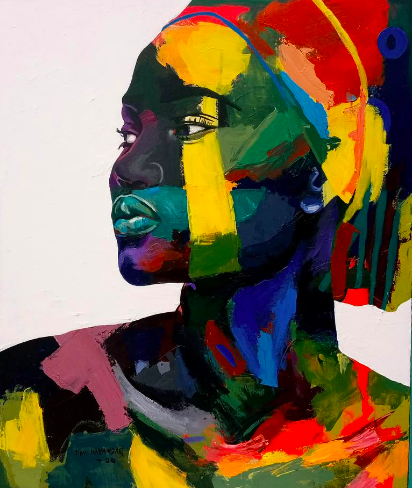BY ERNEST OSOGBUE
It has become very fashionable in recent times for Africa and Africans to ape the Western World on issues of social development; what with the advent of and proliferation of social media, it has become easy to be in the know of what happens in any part of the world in real time without leaving the comfort of one’s home. Thus it is easy for the African Fashionista to know exactly what any of the Kardashian sisters or indeed any of the American movie stars is wearing today.
While this author is not against being trendy and keeping up with the times, the challenge for the writer is that the African’s imitate on the surface, without taking into consideration the fundamentals and dynamics of the Western societies. By imitating the west, Africans remain superficial because they fail to imitate the real development indices of Western Societies such as the deepening of democracy, creation of an egalitarian society, improving the social welfare of citizens and generally improving the human development index to the level of the societies they are imitating.
While the underdevelopment of the continent is not the subject of this piece, it is pertinent to keep the above in mind as we explore the subject of the perception of developed countries in the African mind due to the various images splashed on television and the social media.
Now back to our subject which was mainly triggered by the recent clamor for the closure of the gender pay gap, which means; equality in the workplace and equal pay for the sexes. This is a subject that is very current in the US today; women are asking to be paid the same as their male counterparts for doing the same jobs.
How did this issue come about and what are the reasons for it? Many years ago women were paid less for doing the same jobs as men in America until June 10th 1963 when the Equal Pay Act was signed into law mandating all employers to pay women the same as men for doing the same jobs. Fifty-five years down the line, some women in America believe that despite the legislation, some form of discrimination based on gender is still inherent in the American workplace. By todays interpretation however, the issue has gone beyond the actual amount paid for work done to include the creating of opportunities for women to move up in the corporate ladder, be it in the governmental or private enterprise. In sports especially, and in Hollywood, records show that some form of discriminatory pay structure exists between men and women.
In tennis, football, basketball and many other sports, women receive far less than men in most cases. In Hollywood, women are questioning why they should receive less for playing a lead role than the lead man in the same movie production. The American tennis star Serena Williams has been in the forefront of agitations for equal pay for men and women in tennis. In her arguments, she states that the women’s game is as interesting and intense as the men’s game, so why should women be paid less for winning the same championship? There have also been counter arguments by male tennis players that while they play the best of five sets in grand slams, women only play the best of three sets. This means that men are likely to spend more time on court. In basketball, while we are daily inundated with the mega-million dollar deals signed by stars like Lebron James, Steph Currie, Dwayne Wade and others, the names of top female basketball players are scarcely even mentioned.
As it is in tennis and basketball, so it is in football. While Cristiano Ronaldo and Lionel Messi enjoy mega-star status around the world and the mega-million dollar endorsements that come with it, the same cannot be said of the top female football players in the world. The world football governing body FIFA pays the winner of the male FIFA World Cup far more than the winner of the women version receives. Here in Nigeria the women national team the Super Falcons have won the African Women Championship on multiple occasions, eight times to be precise, while the men -Super Eagles- have won the male version on only three occasions. Despite this superior gap in favor of women, the rewards given the men for their wins still resonate across Nigeria to date while the women are rewarded with paltry gifts here and there by the authorities for their victories. In fact, it was only on August 6th 2015 that the CAF Executive Committee upgraded the name of the women competition to Africa Women Cup of Nations.
In the Nigerian movie industry better known as Nollywood the pay gap seems to favor the women against men. This writer is not privy to the pay structure in Nollywood but from indications, it is clear that the women have an edge over the men. The star status of women actors like Genevieve Nnaji, Omotola Jalade-Ekeinde and of recent Funke Akindele both in Nigeria and across the African continent and the world at large has not been rivaled by any male Nollywood actor. It follows therefore that the endorsements these women stars attract are not available to their male counterparts; one can therefore surmise that women earn more than men in Nollywood.
If the above scenarios in sports and the creative arts which are non-official are removed, can it be said that a gender pay gap exists in Nigeria and by extension in Africa? On the surface one would say there is equal pay for the sexes, by the definition of the Nigerian minimum wage there is no discrimination as to gender. As far as that goes, be it in the private sector or the public sector women earn the same pay as their male counterparts for the same job. Some may even argue that women are favored more than men in job placements in Nigeria due to the socio-political environment currently prevalent in the country
If the above is true, howbeit one is hearing the muted but growing clamor for a closure of the gender pay gap in Nigeria? Does a gender pay gap truly exist in Nigeria, in Africa or is this just another instance of Africa imitating the West without taking cognizance of its own situation? If a gender pay gap truly exists in Africa, should it be closed?
Let it be clearly stated that this writer believes in the equality of the sexes. In the Western World however this equality is in practice and not a theory. It follows that in an American or European home the upkeep of the family rests on both the father and the mother, the financial burden of the home tilts towards the parent who earns more rather than to gender. When co-workers decide to go out to lunch or dinner together, it is expected that everyone would contribute equally in picking up the tab irrespective of gender. When in courtship, either gender could pick up the tab depending on who initiated the outing. These scenarios make it very potent for the American or the European woman to demand an equal pay for the same job as men.
In Africa the socio-cultural environment is completely different. I visited a nephew of mine at a Nigerian university recently and after spending time with him, the issue of dating came up. His reaction when I asked if he was dating anyone was comical. He had looked at me in surprise with his mouth agape ‘uncle do you want to kill me?’ he had asked. Shocked at his response I probed further only to realize that he was running away from girls for financial reasons. The allowance he received from his parents was scarcely enough for him talk more of him having to buy phone cards, lunch and sundry expenses for a girl.
It became clear from his explanation that even as a student, girls expect you to take care of certain responsibilities for them despite your being a dependent, after all; you are a man! The popular song ‘Ferrari’ by Yemi Alade which I believe is a rejoinder to ‘Aye’ a mega hit song by Davido some years ago sums up the position of the African woman to love affairs succinctly.
In Aye Davido sings: she no wan Ferrari, she no wan designer, she say na my love o. translated this means: she doesn’t want Ferrari, she doesn’t want designer clothes, all she wants is my love. In her rejoinder aptly titled Ferrari, Yemi Alade completely rubbishes Davido’s position on true love, she sings: if you love me you go buy me Ferrari, if you love me you go pay me salary, if you want it you go spend to chop am, cos I love you no be mouth o. translated this means: If you love me you must buy me Ferrari, if you love me you must pay me a salary, if you want to make love to me you must spend money, because I love you is not by words alone, it must be proven. Singing further she says; my front eh, my back eh, dey do you ishi mgbaka, if you want to gbadun me well, Mr. Man you must ginger. Translated this means: my bosom and my backside are driving you crazy, if you want to enjoy my love mister you must prove your manhood by showering me with gifts. In other stanzas of the song she goes ahead to name the various designer brands she expects to receive from a prospective male suitor to enhance the love affair.
While there may be some exceptions to her position, the general impression is that Yemi Alade despite being extreme in her expectations correctly captures the position of the majority of African women when it comes to relationships with men. In the Western World this may not necessarily apply. Information available shows that Hollywood star Julia Roberts earns more than her cinematographer husband Danny Moder, as a result Danny is more hands-on with the children while Julia is out making more money, and there hasn’t been too much complaint from either. In Germany, Angela Merkel is the Chancellor; her husband comfortably relaxes back and enjoys the perks of his wife’s position without feeling out of place.
In Africa even when the woman earns more, it is expected that the man must still ‘ginger’ as Yemi Alade puts it, which puts undue pressure on the African man. It would be interesting to be a fly on the wall in the homes of some Nigerian women who are in senior positions in government and in the private sector; are their husbands readily allowed to enjoy the perks of their position? While women easily jump on the campaign trail with their husbands, this writer is pressed to remember how many Nigerian husbands tag behind their wives on the campaign trail. An African man would be ridiculed if he depended on his woman for his upkeep even when she supposedly earns more.
It follows that if a gender pay gap actually exists in Nigeria and in Africa the fight to bridge it must begin with a cultural reorientation of both sexes to present day realities. The African woman must necessarily accept that being male does not confer exclusive money making right to the African man, after all the landscape is replete with women doing better than men in several fields of business. If this cultural reorientation is able to take effect, it would be possible in the near future for Nigeria to have a female president whose husband would lay back and enjoy the perks of being the First Husband without his friends laughing him to scorn as a ‘woman wrapper’, what a joy that would be.









